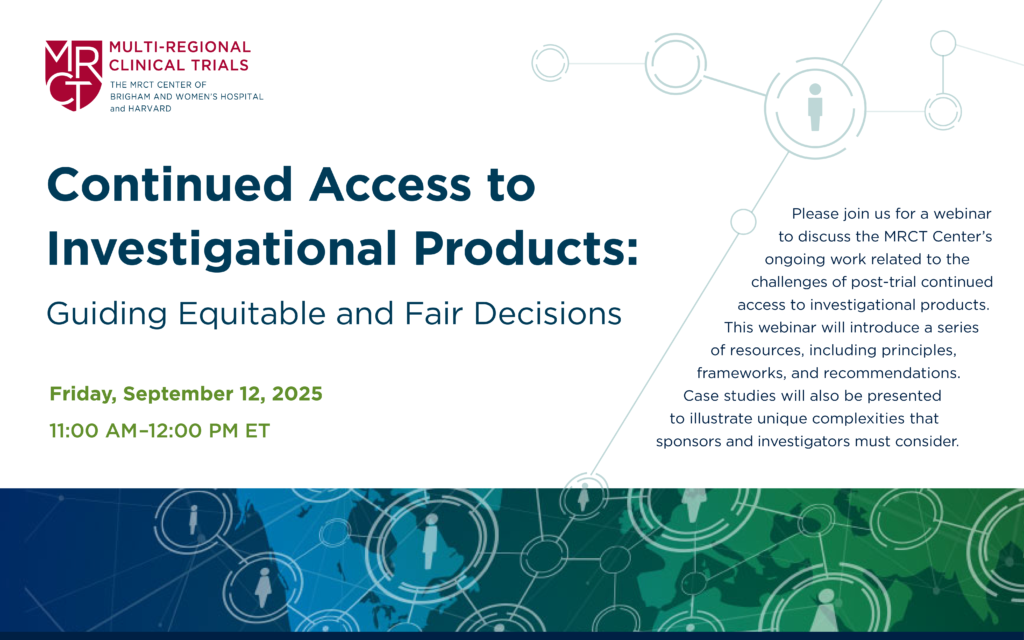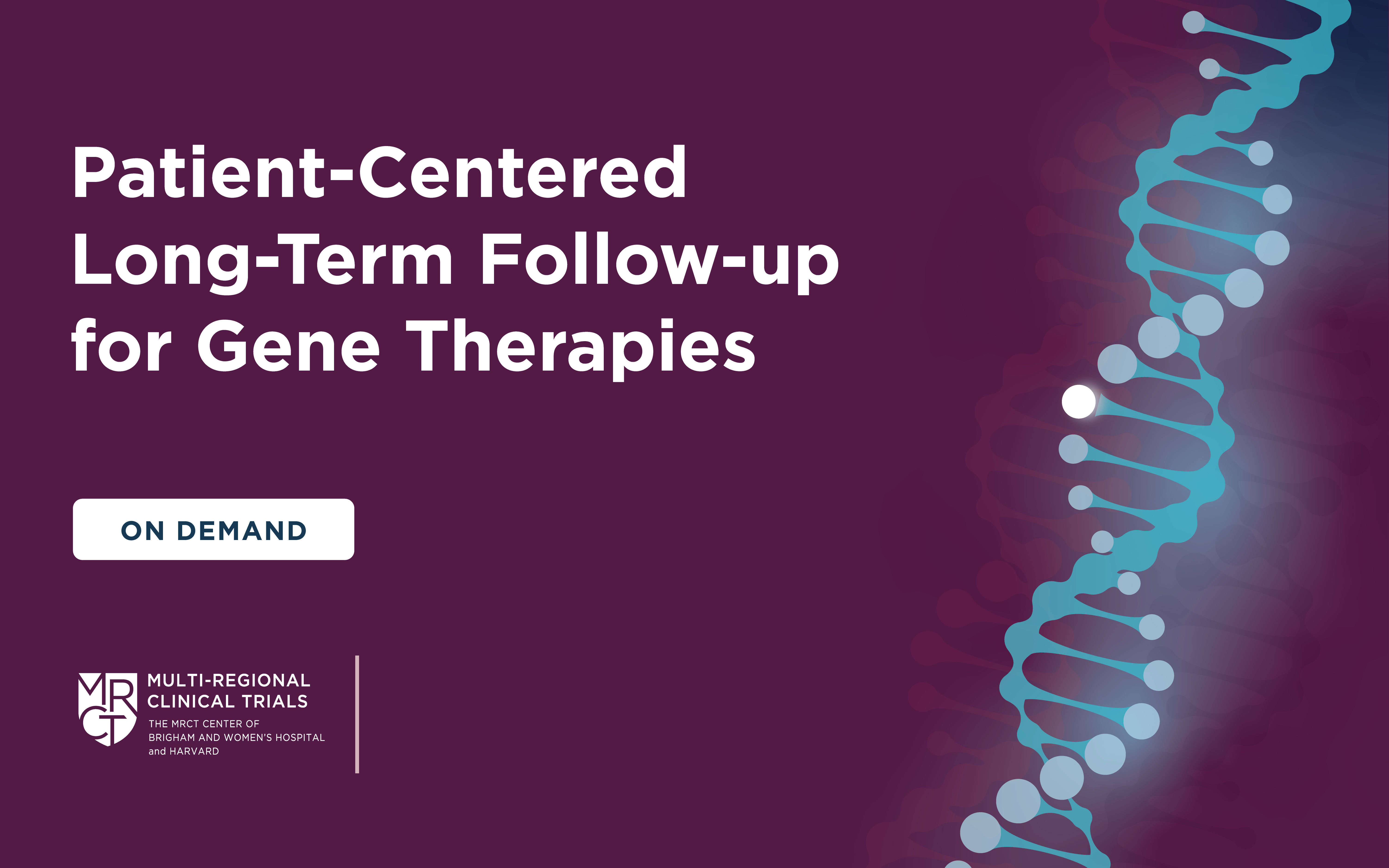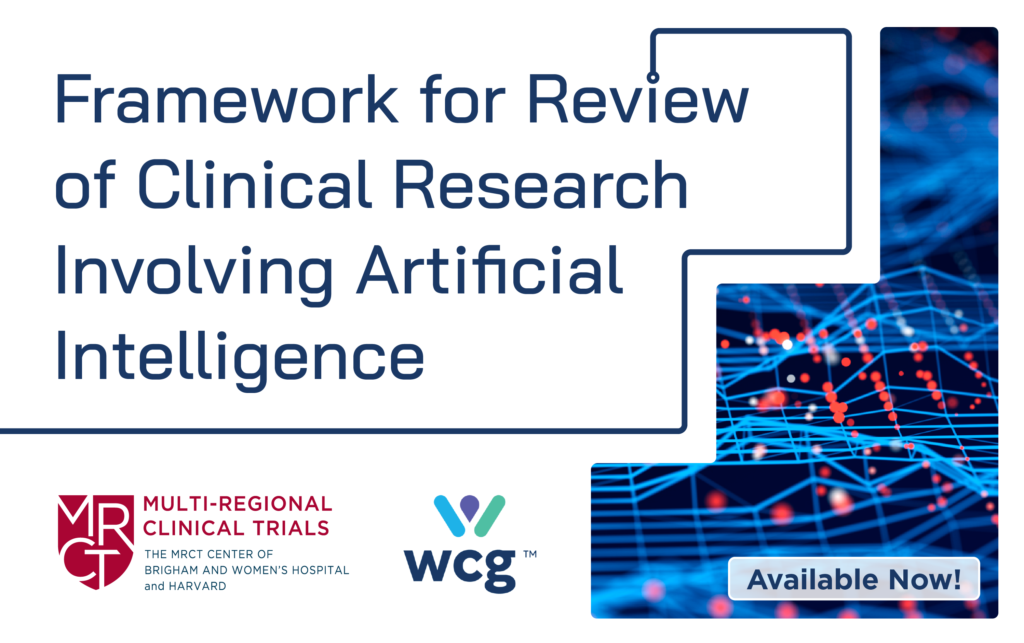Webinar
Date: September 12, 2025

This webinar explores the MRCT Center’s work addressing the challenges of post-trial, continued access to investigational products. Post-trial access is a shared responsibility that should be planned before a trial begins. Even with careful planning, complex situations may arise, requiring sponsors to balance competing priorities and the needs of diverse stakeholders.
The MRCT Center’s Post-Trial Continued Access Task Force has developed principles, frameworks, and recommendations to guide equitable and fair decision-making about the continued provision of investigational medicines or the maintenance of significant-risk investigational devices after a trial ends.
The session includes a case study examining a scenario in which a trial’s primary endpoint is not met, but a subpopulation benefits, illustrating the difficult decisions sponsors and investigators must navigate in determining whether—and how—to provide post-trial, continued access.
Speakers:
- Karla G. Childers, BA, MSJ, MSBE – Vice President, Bioethics, Policy & Partnerships, Johnson & Johnson
- Brandy Ellis – Lived Experience Advocate
- Ben Rotz, RPh – Associate Vice President, Global Medical Policy, Strategy, and Operations, Eli Lilly & Company
Moderated by:
Sarah White, MPH, Executive Director, MRCT Center








